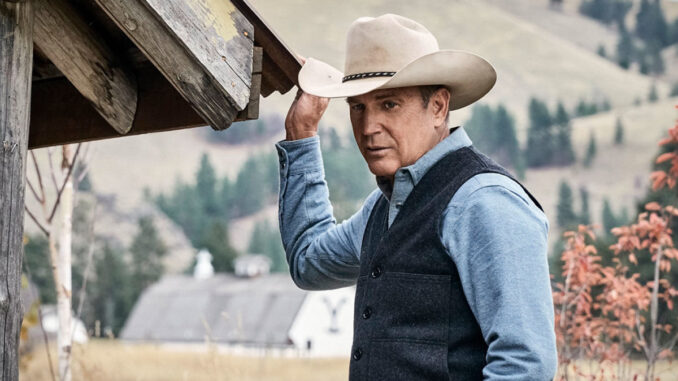
The Montana sky, vast and untamed, has long been a canvas for myth and legend. For millions, its newest embodiment was Yellowstone, a sprawling neo-Western saga that captured the American imagination with its tales of land, legacy, and the Dutton family's ruthless fight for survival. At the heart of this modern epic, as immutable as the mountains themselves, stood Kevin Costner’s John Dutton – a patriarch carved from the same stoic, weathered timber as the landscape he fiercely protected. His sudden exit, however, wasn't just a casting change; it was a seismic event that sent shockwaves rippling through the very bedrock of its devoted fandom.
Costner’s portrayal of John Dutton was more than just acting; it was an embodiment. He brought a gravitas, a weary nobility, and an undeniable Western authenticity that few contemporary actors could muster. Dutton was the moral compass, however skewed, of the Yellowstone universe – a man of few words but profound conviction, whose weathered face told stories of generations of struggle and unwavering will. For many viewers, Costner was John Dutton, and John Dutton was Yellowstone. His presence lent the series an instant credibility, a connection to the classic Western archetypes that resonated deeply with audiences nostalgic for heroes cut from a different cloth. He was the anchor, the unyielding force around which the show’s turbulent narrative revolved.
Yet, beneath this seemingly impregnable facade of success and stability, whispers began to circulate. Rumors of scheduling conflicts, creative differences, and burgeoning personal projects started to chip away at the illusion of permanence. Then, like a bolt from the clear Montana sky, the news broke: Kevin Costner would be leaving Yellowstone. Not at the graceful conclusion of a long-planned arc, but abruptly, mid-story, leaving the fate of John Dutton and the very future of the flagship series hanging precariously in the balance.
The initial reaction was a collective gasp of disbelief, swiftly followed by a cacophony of confusion, anger, and betrayal across social media platforms and fan forums. For a fandom deeply invested in the saga of the Duttons, the news felt like a personal affront. It wasn’t just the departure of an actor; it was the potential abandonment of a beloved character, the disruption of a carefully constructed narrative, and the gnawing uncertainty about how a show so fundamentally tied to its patriarch could possibly continue. How could the ranch endure without its shepherd? How could the family fight on without its unwavering leader?
The shockwaves were multifaceted. There was the emotional impact: the feeling of a story incomplete, of character arcs potentially truncated, of an anticipated ending possibly denied. Fans had invested years, hours, and emotional energy into Yellowstone, forming a visceral bond with its characters and their struggles. Costner's exit felt like pulling the rug out from under that investment. Then, there was the speculative frenzy: what truly happened behind the scenes? Was it creative ego, financial dispute, or a genuine scheduling impossibility? The lack of clear, definitive answers only fueled the fire, turning public discourse into a wild west of conjecture and partisan finger-pointing.
Beyond the immediate shock, Costner’s departure also sparked broader conversations about the nature of television production in the age of streaming giants and superstar demands. It laid bare the fragile balance between artistic vision, commercial imperatives, and the often-tempestuous relationships between creators and their lead actors. It served as a stark reminder that even the biggest, most culturally impactful shows are ultimately vulnerable to the human elements that define them.
Kevin Costner's sudden exit from Yellowstone was more than a headline; it was a cultural event, a disruption that reverberated far beyond the confines of Hollywood. It shattered the illusion of stability for a show that had become a television juggernaut, leaving its vast fandom grappling with a sense of loss, uncertainty, and a poignant reminder that even in the vast, enduring landscape of the American West, nothing, not even the reign of a Dutton patriarch, lasts forever. The dust has yet to settle, and the future of the Yellowstone ranch, much like the Montana sky, remains hauntingly, beautifully, and uncertainly open.
